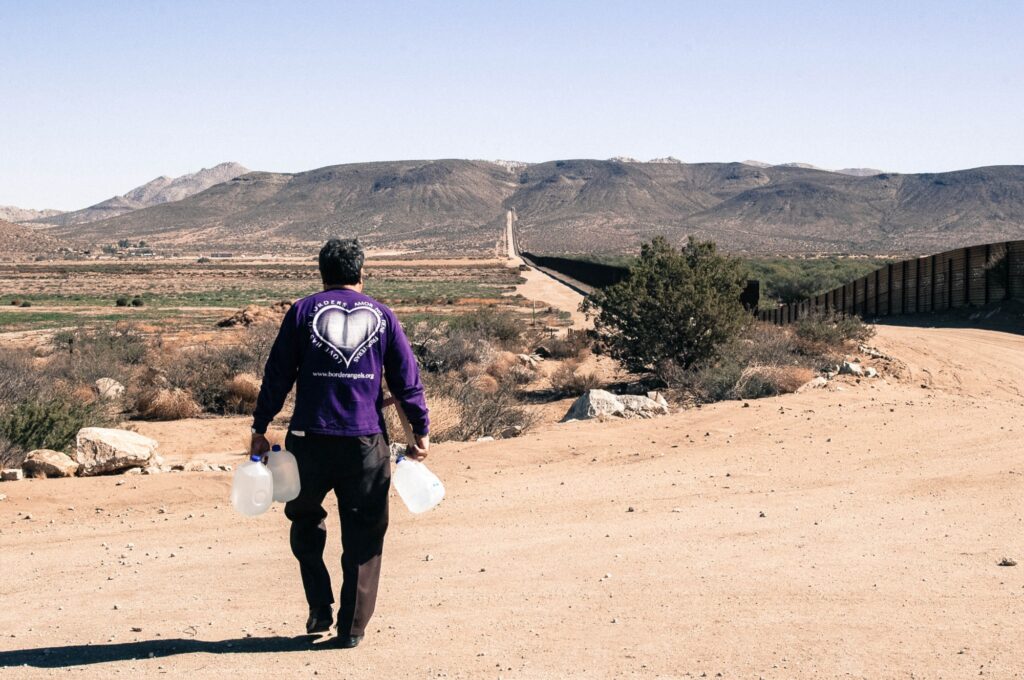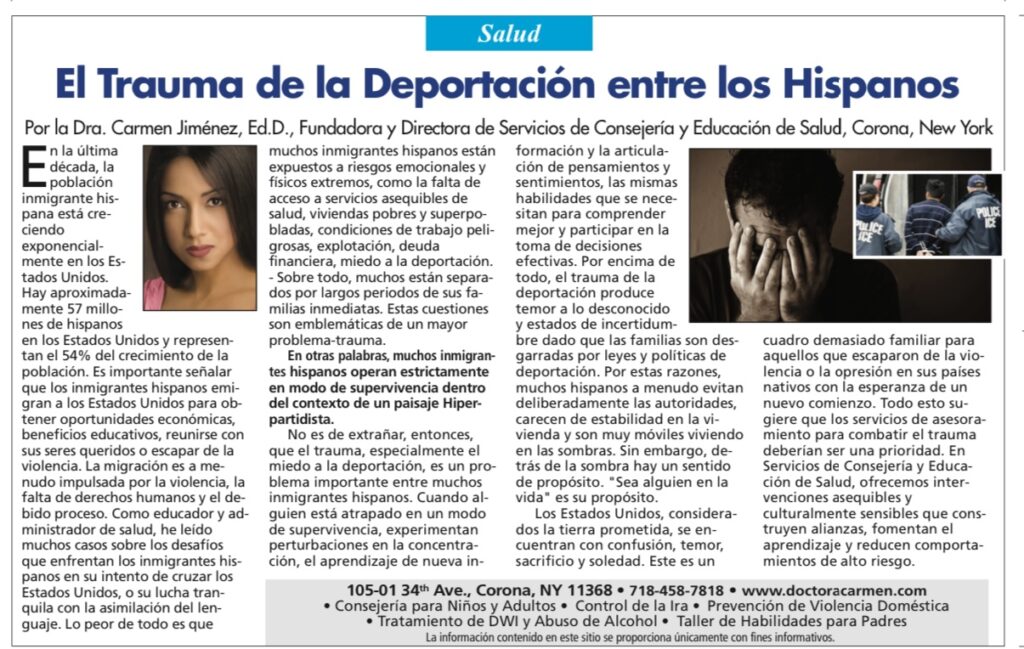
The Mapping Protocol (MP) is an adjunct therapeutic technique that incorporates the use of graphic representation in the form of maps or images that add additional sensory and visual information. It helps to understand the journey from country of origin to the new country, foster communication between the practitioner and client, activate the memory network with complex trauma clients, and facilitate blocked processing.

Given that trauma interrupts the brain’s capacity to integrate information leading to active limbic systems, the Mapping Protocol offers a visual tool for both the therapist and client, allowing the client to better articulate the culture and journey of relocation while building rapport. This process can help to identify the traumatic memories related to the journey that continue to impact the client and facilitate trauma processing from the prism of the client’s experience.
Discovered in 2015 by Dr. Carmen Jimenez, ongoing research suggests that the Mapping Protocol can be applied as an adjunctive therapeutic technique in:

Dr. Carmen Jimenez coined the term deportphobia® in 2017. Dr. Jimenez discussed her observations of a persistent fear characterized by either avoidance of certain locations, avoidance of leaving home, increase guilt among children who feel that they cannot protect their parents, an intense fear of separation and discomfort, nightmares, hypervigilance, panic attacks, confusion and uncertainty, distrust in the community, and daily triggers such as media outlets and a fear-driven community among co-patriots.
Jimenez, C. (2024, April). Understanding trauma and alcohol misuse among undocumented Hispanic immigrants and the Mapping Protocol. Guest speaker at SWSD, Panama.
Jimenez, C. (2023, October-Present). Guest speaker on the radio show Oxigeno 102.5 FM., Santiago, Dominican Republic
Jimenez, C. (2022, June). Trauma and Alcohol Use among Undocumented Hispanic Immigrants & the Mapping Protocol.
Presentation at the NASW-NYC Chapter Continuing Education Conference, New York.
Jimenez, C. (2020, December). Understanding trauma among undocumented Hispanic immigrants and the Mapping Protocol. Virtual staff training at Open Paths Counseling Center, Los Angeles, CA
Jimenez, C. (2019, October). Understanding trauma among undocumented Hispanic immigrants and the Mapping Protocol. In-service staff training at Montefiore Hospital, Bronx, NY
Jimenez, C. (2018, September). Understanding trauma among undocumented Hispanic immigrants and the Mapping Protocol. In-service staff training at the Community Counseling and Mediation, Brooklyn, NY
Jimenez, C. (2018, June). Understanding trauma among undocumented Hispanic immigrants with a history of relocation and the use of EMDR Therapy and the Mapping Protocol. Presentation at the 50th Annual NASW-NYC Addictions Institute, NY
Jimenez, C. (2018, May). The impact of alcohol abuse and trauma among Hispanic immigrants. Presentation at
Mujeres Empoderando Mujeres (Women Empowering Women), Corona, NY
Jimenez, C. (2018, April). EMDR therapy and the mapping protocol with undocumented Hispanic immigrants and other populations with a history of relocation. Presentation at the EMDR Canada Annual Conference, Québec City, QC Jiménez, C. (2017, April). EMDR and the mapping protocol with Hispanic immigrants and other populations with a history of relocation. Presentation at the 13th Western Mass EMDRIA Regional Network Spring Conference, Amherst MA

Disclaimer: The information on this site is provided as an informational resource only, and is not to be used or relied on for any diagnostic or treatment purposes.
This information is not intended to be client/patient education, does not create any client-social worker relationship, and should not be used as a substitute for professional diagnosis and treatment.
Contact a healthcare provider if you have questions about your health/mental health or about making any healthcare decisions.